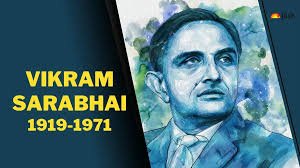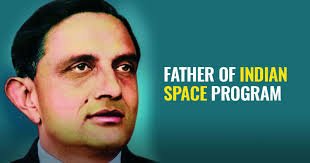ISRO Founder – Contributions and Legacy
Introduction to ISRO’s Founder
The Indian Space Research Organisation (ISRO) has made monumental strides in space exploration, and much of its success can be attributed to its visionary founder, Dr. Vikram Sarabhai. Often hailed as the father of the Indian space program, Dr. Sarabhai’s contributions to science, technology, and space exploration continue to shape India’s progress in these fields.
Vikram Sarabhai’s Early Life and Education
Dr. Vikram Sarabhai was born on August 12, 1919, in Ahmedabad, India. His academic journey began with a degree in science from the University of Gujarat, followed by a doctorate in physics from Cambridge University. Sarabhai’s education, combined with his immense curiosity about space and technology, laid the foundation for his groundbreaking work in space science.
Founding of ISRO
In 1962, Dr. Sarabhai founded ISRO, with the primary goal of utilizing space technology for the socio-economic development of India. His vision was not limited to scientific exploration but focused on practical applications, such as communication satellites and weather forecasting. Under his leadership, India successfully launched its first satellite, Aryabhata, in 1975, paving the way for future achievements in space.
Dr. Sarabhai’s Influence on Indian Science and Technology
Dr. Sarabhai’s influence extended beyond ISRO. He played a pivotal role in the establishment of institutions like the Indian Institute of Management (IIM), Ahmedabad, and the Indian Institute of Space Science and Technology (IIST). His passion for promoting scientific research and education in India remains a significant part of his legacy.

Why This News Is Important
ISRO’s Global Status
Dr. Vikram Sarabhai’s contributions were instrumental in establishing ISRO as one of the leading space agencies in the world. Today, India is known for its cost-effective space missions, such as the Mars Orbiter Mission (Mangalyaan) and the Chandrayaan lunar missions, which have garnered global recognition. His early vision for space technology’s potential to impact social development has been realized in ISRO’s efforts to improve agricultural productivity, weather forecasting, and telecommunications in rural India.
A Vision for Science and Innovation
Dr. Sarabhai’s legacy is particularly important for students aspiring to enter fields related to science and technology. His ability to blend scientific inquiry with practical solutions has inspired generations of scientists and engineers. The success of ISRO today is a testament to the foundation laid by Dr. Sarabhai, and his vision continues to guide India’s space endeavors.
Historical Context
The Birth of India’s Space Program
The origins of India’s space program can be traced back to the early 1960s when Dr. Vikram Sarabhai, in collaboration with the Indian government, recognized the need for a dedicated national space agency. India’s first satellite, Aryabhata, launched in 1975, marked a turning point in the nation’s space history. This achievement was only possible due to Dr. Sarabhai’s relentless pursuit of scientific progress.
The Role of ISRO in Nation Building
Dr. Sarabhai envisioned space technology as a tool for nation-building. Under his leadership, ISRO not only focused on space exploration but also on practical applications, such as satellite communication and weather forecasting, to address India’s unique socio-economic challenges. His early vision continues to guide ISRO’s efforts today.
Key Takeaways from ISRO Founder – Vikram Sarabhai’s Legacy
| S. No. | Key Takeaway |
|---|---|
| 1 | Dr. Vikram Sarabhai is known as the father of India’s space program and founder of ISRO. |
| 2 | Under Dr. Sarabhai’s leadership, ISRO launched India’s first satellite, Aryabhata, in 1975. |
| 3 | Dr. Sarabhai envisioned using space technology for practical applications, including agriculture and communication. |
| 4 | His contributions led to the creation of several major institutions, including the IIM Ahmedabad and IIST. |
| 5 | Dr. Sarabhai’s legacy continues to influence India’s global standing in space exploration and technology. |
Important FAQs for Students from this News
Q1: Who is considered the father of India’s space program?
A1: Dr. Vikram Sarabhai is widely regarded as the father of India’s space program. He founded ISRO and played a key role in the country’s space exploration journey.
Q2: What was India’s first satellite and when was it launched?
A2: India’s first satellite was Aryabhata, which was launched in 1975. This was a significant milestone in the country’s space exploration efforts.
Q3: How did Dr. Vikram Sarabhai contribute to the development of ISRO?
A3: Dr. Sarabhai founded ISRO in 1962 and focused on using space technology for the socio-economic development of India. His leadership enabled India to successfully launch its first satellite and laid the foundation for numerous space missions.
Q4: What were Dr. Vikram Sarabhai’s views on space technology and its application?
A4: Dr. Sarabhai believed that space technology should be used for practical applications, such as improving agriculture, communication, and weather forecasting, to address India’s socio-economic challenges.
Q5: What institutions did Dr. Vikram Sarabhai help establish?
A5: Dr. Sarabhai was instrumental in the establishment of institutions like the Indian Institute of Management (IIM) in Ahmedabad and the Indian Institute of Space Science and Technology (IIST).
Some Important Current Affairs Links


















 Exciting News!
Exciting News!  Join Our Telegram Channel Now!
Join Our Telegram Channel Now!
 Join our Telegram channel for a thrilling adventure into the world of daily current affairs.
Join our Telegram channel for a thrilling adventure into the world of daily current affairs. 
 Don’t miss out on the latest updates and insights! Click to join now and be part of the knowledge revolution!
Don’t miss out on the latest updates and insights! Click to join now and be part of the knowledge revolution! 
